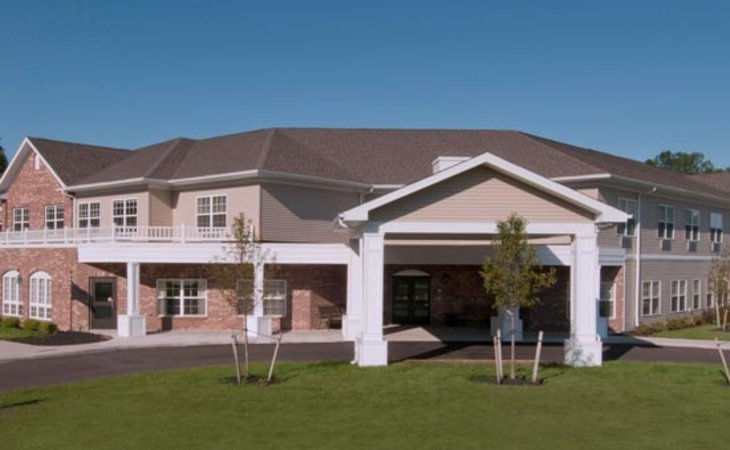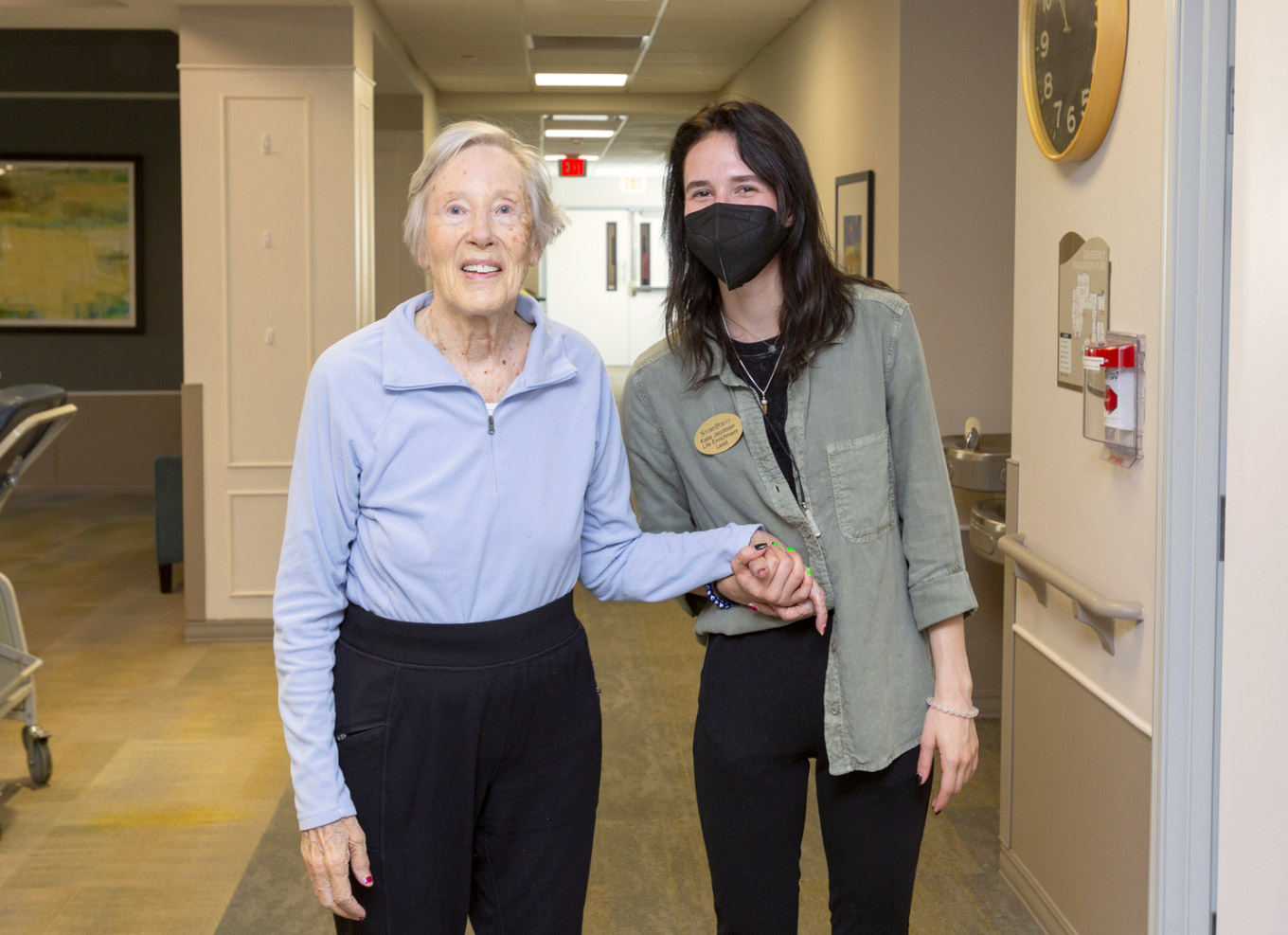What to Anticipate in Memory Treatment: A Thorough Guide to In-Home Services
As households come to terms with the difficulties of caring for somebody with memory loss, the realm of in-home solutions supplies a lifeline of assistance and specialized care. Understanding what to anticipate in memory treatment is crucial for making certain the wellness of both the private with memory impairment and their caretakers.
Daily Routines and activities
Participating in organized daily tasks and regimens is a fundamental element of providing top quality care for people in memory care facilities. These tasks are diligently developed to satisfy the particular demands of locals with cognitive problems, such as Alzheimer's illness or mental deterioration. Daily routines play an essential role in maintaining a sense of familiarity, protection, and objective for individuals in memory care.
Furthermore, everyday regimens aid individuals in memory care facilities to feel even more focused and much less distressed. Uniformity in routines and activities can minimize complication and frustration, giving a sense of stability and comfort. Caregivers and team members play a crucial role in assisting in these tasks, making certain that each resident obtains personalized and compassionate care customized to their unique preferences and abilities.
Specialized Care Services
Within memory treatment centers, specialized treatment solutions are vital to resolve the unique needs and difficulties encountered by people with cognitive disabilities such as Alzheimer's illness or dementia. These services are designed to provide tailored assistance that accommodates the certain demands of citizens taking care of amnesia. Specialized care services in memory care facilities frequently consist of individualized care plans, assistance with tasks of day-to-day living, medicine management, and behavior modifications intended at enhancing lifestyle and minimizing distress.
In addition, memory care centers normally offer organized programs and activities specifically developed to boost cognitive function and promote social engagement amongst citizens. These activities might include memory-enhancing workouts, sensory excitement therapies, and memory therapy sessions. In addition, specialized care solutions commonly involve normal monitoring of homeowners' health and wellness by trained team members that are equipped to manage the unique obstacles connected with cognitive decline.
Precaution and Atmosphere
Implementing rigorous safety and security steps and developing a protected setting are critical top priorities in memory care facilities to make certain the well-being and security of homeowners with cognitive impairments. Security in memory treatment begins with safe and secure building style, consisting of secured doors and kept track of access to stop citizens from straying outside without supervision. Furthermore, centers frequently have alarm system systems and security cameras to keep track of citizens and react promptly to any type of emergency situations. Inside, the setting is meticulously planned to reduce dangers, with handrails, get hold of bars, and non-slip floor covering to avoid falls. Furniture is arranged to help with easy navigation, and potentially dangerous products are locked away or eliminated. Staff members receive specialized training in handling emergencies, de-escalating challenging behaviors, and ensuring the safety of residents at all times. Normal safety and security evaluations are carried out to determine and deal with any potential hazards without delay. By focusing on safety and security procedures and preserving a secure setting, memory treatment facilities aim to give a comforting and protective setup for individuals with cognitive impairments.
Interaction and Interaction Approaches
With a focus on boosting and fostering significant communications lifestyle, reliable communication methods play an important duty in supporting individuals in memory care facilities. Interaction in memory care involves comprehending the special needs of locals who might have cognitive problems like mental deterioration. Simple language, clear directions, and non-verbal hints such as motions and faces are essential tools for efficient interaction. Caretakers need to come close to residents with empathy, regard, and perseverance, producing a helpful atmosphere where individuals feel comprehended and valued.
Engagement approaches are additionally crucial in memory care, aiding citizens stay active, promoted, and connected to their environments. Activities like songs treatment, art classes, memory sessions, and sensory excitement can trigger memories, enhance mood, and advertise socialization. Tailoring tasks to each person's rate of interests and abilities is vital to promoting engagement and a feeling of accomplishment. why not try these out In addition, incorporating acquainted objects, pictures, and songs from the individual's past can provide comfort and promote positive memories. By focusing on tailored communication and interaction strategies, memory care facilities can boost the overall health and lifestyle for their homeowners.
Caretaker Support and Resources
Given the essential duty caretakers play in implementing reliable interaction and engagement techniques for locals in memory care centers, supplying appropriate support and resources is important to make certain the wellness of both the caretakers and the people under their treatment. Caretakers in memory care settings usually encounter one-of-a-kind challenges that can influence their physical and emotional well-being. To deal with these obstacles, numerous support group and sources are visit this web-site readily available to help caretakers in supplying the very best possible care.
One crucial type of support is caretaker education and learning and training programs. These programs gear up caregivers with the necessary skills and expertise to properly manage the symptoms and actions connected with memory loss. In addition, support groups provide caretakers the chance to attach with others that are experiencing comparable difficulties, providing a sense of community and understanding.

Final Thought

Involving in organized everyday tasks and regimens is a fundamental part of supplying high quality care for individuals in memory treatment centers.Within memory care facilities, specialized treatment solutions are vital to resolve the distinct requirements and obstacles faced by individuals with cognitive problems such as Alzheimer's condition or dementia. Specialized care services in memory care facilities usually include personalized care plans, assistance with activities of day-to-day living, drug management, and behavioral therapies intended at boosting top quality of life and minimizing distress.
Provided the important duty caretakers play in implementing effective communication and interaction approaches for residents in memory care facilities, supplying ample assistance and sources is crucial to ensure the well-being of both the caregivers and the people under their treatment. Daily tasks, specialized treatment solutions, security steps, communication techniques, and caregiver assistance are vital parts of at home memory treatment.